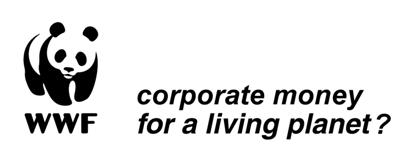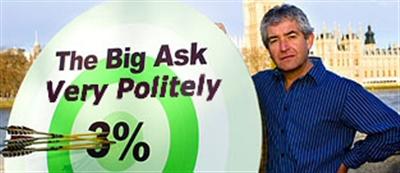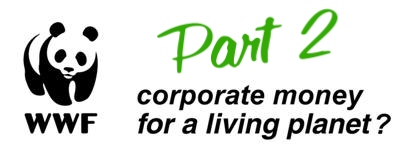
Walking home from my local town centre the other day, I spotted a large advertisement by the global bank HSBC: they were proudly announcing that for every new account opened or mortgage taken out they will donate a magnificent £2 to the WWF’s rainforest protection project in Brazil. That’ll break the bank then (every pun intended)! I did a bit of hunting around and found that HSBC were committed to decent standards in their investments as regards forestry, but here’s the catch: when I wrote to WWF-UK it turned out they had absolutely no veto over HSBC’s activities.
Dear xxxx
As discussed, and with regards to http://www.wwf.org.uk/business/whoweworkwith/c_0000000018.asp, please could you let me know whether WWF would be prepared to relinquish their partnership with HSBC (which I personally find extremely uncomfortable as it is) should it turn out that as a result of HSBC’s investment activities they were causing a net (direct or indirect) damage to rainforest ecosystems and/or the tribal peoples within.
Keith Farnish
In response I received a statement on their principles, which included “WWF believes that the most effective and long term environmental change comes about through constructive and challenging dialogue and engagement with business, industry and governments…” So, no answer there. I asked again.
Dear xxxx
I’m afraid this does not answer my question:
…
Am I correct to assume that WWF would continue to remain a partner regardless of HSBC’s activities?
Kind regards
Keith
— ——–
Hi Keith
xxxx has passed your email to me. You are asking a hypothetical question. If there was an issue we would obviously deal with it on a case by case basis. We cannot give you a blanket answer based on a hypothetical question.
I hope you can understand our position.
Best wishes
xxxx
———-
Dear xxxx
All questions regarding the future are hypothetical. WWF are combating rainforest destruction partly because you believe that it will cause a increase in atmospheric carbon levels – and quite right, too – but it is only as definite as the science says it is (around 90%). There is a strong chance, based on past behaviour that HSBC will invest in activities that cause a net loss in forest quality or area, so I am very surprised that you do not have this scenario covered. It would make the terms of your agreement far more solid, and also ensure that HSBC are far less likely to make damaging investments or loans.
Given your position I have no option but to assume that you are not protecting against this potential situation, and will have to report this as so.
Kind regards
Keith
———-
Dear Keith
You have asked us to comment on a vague hypothetical situation, which is very unusual. To make assumptions on the basis of our inability to comment on this is irresponsible journalism. As I have already said we would make decisions on a case by case basis, depending upon the scenario or issue. I also think that making assumptions on past behaviour is short sighted to say the least.
If you are making assumptions please make this clear rather than report this as fact.
Kind regards
xxxx
Very interesting. So, in short, WWF have made no agreement with HSBC that they would pull out of the partnership should HSBC behave irresponsibly. PLUS, they do not judge a company based on its past behaviour; any investments in destructive activities are swept under the carpet, provided you have the money to invest. For a stipend of around £100,000 and a little bit of box ticking, you can use the WWF logo on your headed notepaper. For an investment of around £1 million, you can plaster the WWF logo all over your adverts and look greener than green.
And if you think the UK is bad, tomorrow I will be going over to the USA…









